 According to some Anglicans, yes. From The Times.
According to some Anglicans, yes. From The Times.My commentary in red.
Radical proposals to reunite Anglicans with the Roman Catholic Church under the leadership of the Pope are to be published this year, The Times has learnt. [Well, the proposal ain't so radical. From the commentary of the ARCIC co-chairmen in 'The Gift of Authority': 'In March 1966 the then Archbishop of Canterbury, Dr Michael Ramsey, paid an official visit to Pope Paul VI in Rome. This inaugurated a new era in relations between the Anglican Communion and the Catholic Church, with the emphasis on Christian charity and sincere efforts to remove the causes of conflict and re-establish unity.' So, no, the proposal is not so radical. From the time dialogue began between the Catholic Church and the Anglican Communion, unity was the stated aim.]
The proposals have been agreed by senior bishops of both churches. [A good lot of bollocks that'll do. From previous the history of the ARCIC statements, nothing came of it and the Anglican Church continued to go its own way and do as it pleases.]
In a 42-page statement prepared by an international commission of both churches, Anglicans and Roman Catholics are urged to explore how they might reunite under the Pope. [This was actually explored and agreed upon in the ARCIC document 'The Gift of Authority', which came out waaaaaay back in 1999. And what came out of that? Bupkus!, thats what.]
The statement, leaked to The Times, is being considered by the Vatican, where Catholic bishops are preparing a formal response. [Which should be along the lines of 'Show me by your deeds, not just mere words'.]
It comes as the archbishops who lead the 38 provinces of the Anglican Communion meet in Dar es Salaam, Tanzania, in an attempt to avoid schism over gay ordination and other liberal doctrines that have taken hold in parts of the Western Church. [And trying to re-unite with the Catholic Church won't provoke schism? The Catholic Church is is considered apostate by some Anglicans and the 39 Articles of Religion has this to say:
Article XXII. Of Purgatory.
The Romish Doctrine concerning Purgatory, Pardons, Worshipping and Adoration, as well of Images as of Relics, and also Invocation of Saints, is a fond thing, vainly invented, and grounded upon no warranty of Scripture, but rather repugnant to the Word of God.]The 36 primates at the gathering will be aware that the Pope, while still a cardinal, sent a message of support to the orthodox wing of the Episcopal Church of the US as it struggled to cope with the fallout after the ordination of the gay bishop Gene Robinson. [I'm sure the TEC or ECUSA or whatever they want to be called will be thrilled.]
Were this week’s discussions to lead to a split between liberals and conservatives, many of the former objections in Rome to a reunion with Anglican conservatives would disappear. [I don't think the many serious and conscientious objections many Anglicans hold will just disappear like that. They have to profess all that the Catholic Church holds and teaches to be revealed by God with the assent of Faith. We don't want an influx of heretics. We have enough of those as it is.] Many of those Anglicans who object most strongly to gay ordination also oppose the ordination of women priests. [But some don't and Rome opposes both, so? Someone's gotta give.]
Rome has already shown itself willing to be flexible on the subject of celibacy when it received dozens of married priests from the Church of England into the Catholic priesthood after they left over the issue of women’s ordination. [Perhaps the solution is an Anglican sui juris Church, but with the likes of the Traditional Anglican Communion, not the Anglican Communion centred in Canterbury.]
There are about 78 million Anglicans, compared with a billion Roman Catholics, worldwide. In England and Wales, the Catholic Church is set to overtake Anglicanism as the predominant Christian denomination for the first time since the Reformation, thanks to immigration from Catholic countries.
As the Anglicans’ squabbles over the fundamentals of Christian doctrine continue — with seven of the conservative primates twice refusing to share Communion with the other Anglican leaders at their meeting in Tanzania — the Church’s credibility is being increasingly undermined in a world that is looking for strong witness from its international religious leaders. [You don't say.]
The Anglicans will attempt to resolve their differences today by publishing a new Anglican Covenant, an attempt to provide a doctrinal statement under which they can unite. [Good luck. They haven't succeeded until now. There's just no authority in Anglicanism capable of upholding and enforcing such a covenant.]
But many fear that the divisions have gone too far to be bridged and that, if they cannot even share Communion with each other, there is little hope that they will agree on a statement of common doctrine. [Perceptive, aren't they?]
The latest Anglican-Catholic report could hardly come at a more sensitive time. It has been drawn up by the International Anglican-Roman Catholic Commission for Unity and Mission, which is chaired by the Right Rev David Beetge, an Anglican bishop from South Africa, and the Most Rev John Bathersby, the Catholic Archbishop of Brisbane, Australia.
The commission was set up in 2000 by the former Archbishop of Canterbury, Lord Carey of Clifton, and Cardinal Edward Cassidy, then head of the Vatican’s Council for Christian Unity. Its aim was to find a way of moving towards unity through “common life and mission”.
The document leaked to The Times is the commission’s first statement, Growing Together in Unity and Mission. The report acknowledges the “imperfect communion” between the two churches but says that there is enough common ground to make its “call for action” about the Pope and other issues.
In one significant passage the report notes: “The Roman Catholic Church teaches that the ministry of the Bishop of Rome [the Pope] as universal primate is in accordance with Christ’s will for the Church and an essential element of maintaining it in unity and truth.” [That's not significant at all. That's what the Catholic Church has always taught. ARCIC said the same thing in 'The Gift of Authority'. Listen to this:
47. Within his wider ministry, the Bishop of Rome offers a specific ministry concerning the discernment of truth, as an expression of universal primacy. ... The reception of the primacy of the Bishop of Rome entails the recognition of this specific ministry of the universal primate.]
Anglicans rejected the Bishop of Rome as universal primate in the 16th century. [And look what happened to them. Let's take that as a warning for those who reject the Roman Primacy and advocate more collegiality.] Today, however, some Anglicans are beginning to see the potential value of a ministry of universal primacy, [About time, if you ask me.] which would be exercised by the Bishop of Rome, as a sign and focus of unity within a reunited Church.
In another paragraph the report goes even further: “We urge Anglicans and Roman Catholics to explore together how the ministry of the Bishop of Rome might be offered and received in order to assist our Communions to grow towards full, ecclesial communion.” [Nothing new here. ARCIC's 'The Gift of Authority' again:
52. The Commission is of the view that we have deepened and extended our agreement on:
the possibility, in certain circumstances, of the Church teaching infallibly at the service of the Church’s indefectibility (paragraphs 41-44); a universal primacy, exercised collegially in the context of synodality, as integral to episcope at the service of universal communion; such a primacy having always been associated with the Bishop and See of Rome (paragraphs 46-48); how the ministry of the Bishop of Rome assists the ministry of the whole episcopal body in the context of synodality, promoting the communion of the local churches in their life in Christ and the proclamation of the Gospel (paragraphs 46-48); how the Bishop of Rome offers a specific ministry concerning the discernment of truth (paragraph 47). If you ask me, ARCIC went even further than the current statement.]
Other recommendations include inviting lay and ordained members of both denominations to attend each other’s synodical and collegial gatherings and conferences. Anglican bishops could be invited to accompany Catholic ones on visits to Rome. [Been there, done that. From ARCIC's 'The Gift of Authority' again:
Renewed Collegiality: Making Visible our Existing Communion
58. Anglicans and Roman Catholics are already facing these issues but their resolution may well take some time. However, there is no turning back in our journey towards full ecclesial communion. In the light of our agreement the Commission believes our two communions should make more visible the koinonia we already have. Theological dialogue must continue at all levels in the churches, but is not of itself sufficient. For the sake of koinonia and a united Christian witness to the world, Anglican and Roman Catholic bishops should find ways of cooperating and developing relationships of mutual accountability in their exercise of oversight. At this new stage we have not only to do together whatever we can, but also to be together all that our existing koinonia allows.
59. Such cooperation in the exercise of episcope would involve bishops meeting regularly together at regional and local levels and the participation of bishops from one communion in the international meetings of bishops of the other. Serious consideration could also be given to the association of Anglican bishops with Roman Catholic bishops in their ad limina visits to Rome. Wherever possible, bishops should take the opportunity of teaching and acting together in matters of faith and morals. They should also witness together in the public sphere on issues affecting the common good. Specific practical aspects of sharing episcope will emerge from local initiatives.
Remember folks, this came out waaaaaay back in 1999. And yet, bubkus.]
The report adds that special “protocols” should also be drawn up to handle the movement of clergy from one Church to the other. Other proposals include common teaching resources for children in Sunday schools and attendance at each other’s services, pilgrimages and processions.
Anglicans are also urged to begin praying for the Pope during the intercessionary prayers in church services, and Catholics are asked also to pray publicly for the Archbishop of Canterbury. [Ok. This part I don't get. They acknowledge the Universal Primacy of the Pope and therefore it's right for Anglicans and Catholics to pray for him. But who the heck is the Archbishop of Canterbury? Why should Catholics pray for him? ]
In today’s Anglican Church, it is unlikely that a majority of parishioners would wish to heal the centuries-old rift and return to Rome. [Yeah, they too comfortable in their heresy and their social club churches, each going their own way like disobedient children home alone.]
However, the stance of the Archbishop of Canterbury over the present dispute dividing his Church gives an indication of how priorities could be changing in light of the gospel imperative towards church unity.
Dr Rowan Williams, who as Primate of the Church of England is its “focus for unity” [That's theological speak for a person who can do nuts as his house falls all around him.], has in the past supported a liberal interpretation of Scripture on the gay issue. [That of course gives him loads of credibility with the likes of Akinola and John Chew.] But he has made it clear that church unity must come before provincial autonomy. [Fair and good. But can he DO anything about it? Why should the TEC listen to him?] A logical extension of that, once this crisis is overcome either by agreement or schism, would be to seek reunion with the Church of England's own mother Church. [Who are ordaining women to the episcopate.]
Plans to reunite Anglicans with Roman Catholics under the leadership of the Pope are to be published this year. [Good luck with that and good luck in 'unordaining' all those women priests and bishops.]
The proposal, is designed to encourage Christian unity. It has been discussed by senior bishops of both Churches and is being reviewed by the Vatican. [The Vatican is wasting its time. Just send them a copy of Apostolicae Curae and ask them to repent and come back to Holy Mother Church.]
If agreed, it would see Anglicans reunited with the Roman Catholic Church just under five centuries after the Protestant split from Rome. [I'm not holding my breath. Looking at the state of the current ecumenical dialogues, I think that, aside from dialogue with the Orthodox(Jerusalem and Constantinople recognize Anglican orders by the way), the others are fruitless. I'm convinced that the only way to achieve Christian Unity is to preach an ecumenism of return and repentance. ]
In a document titled Growing Together In Unity And Mission, the Anglican-Roman Catholic Commission for Unity and Mission, set up in 2000 to try to bring both Churches together, outlines how they could unite and calls for a "full, ecclesial union". [Kneel at the altar of the Catholic Church closest to you and say these words:
O my God, I firmly believe that you are one God in three divine Persons, Father, Son, and Holy Spirit. I believe that Your divine Son became man and died for our sins, and that He will come to judge the living and the dead. I believe these and all the truths which the holy Catholic Church teaches, because You have revealed them, who can neither deceive nor be deceived.And in case I wasn't clear, I say it again, I believe and profess all that the holy Catholic Church teaches, believes and proclaims to be revealed by God.
Amen.
And there you have it. Instant Christian Unity. =)]
![[Unam Sanctam]](https://blogger.googleusercontent.com/img/b/R29vZ2xl/AVvXsEiymQ2adTjpZ1ABhPBbBBquiPCxeQrc4Jy_97vOikT0wGQeJleriiXQy6ebnb0jrYe-TfvcK77txStB4aIwVAdD41ZdMkVfNtFGC0JX6LBV9B8mfeRZaIAM7Sj-011ag3DiKQzv/s1600/headerdivinemercy.jpg)














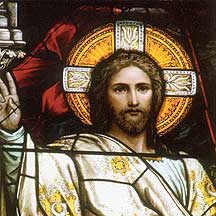







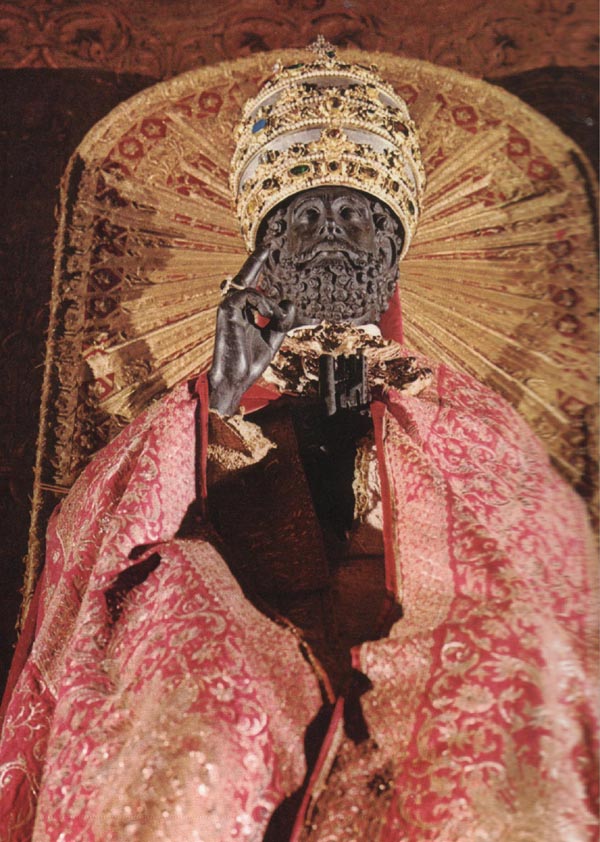
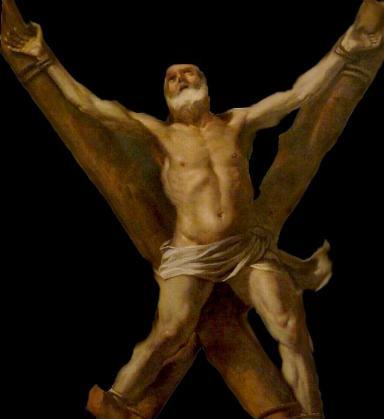




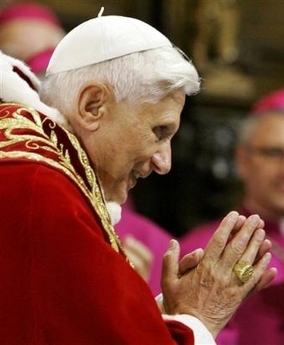






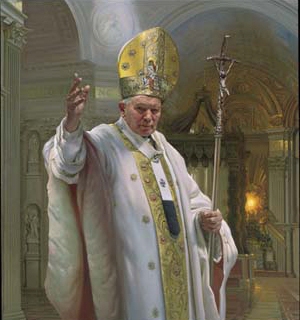
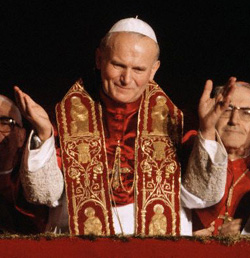
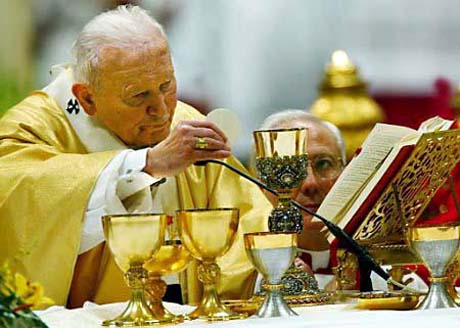







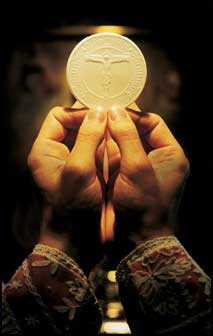
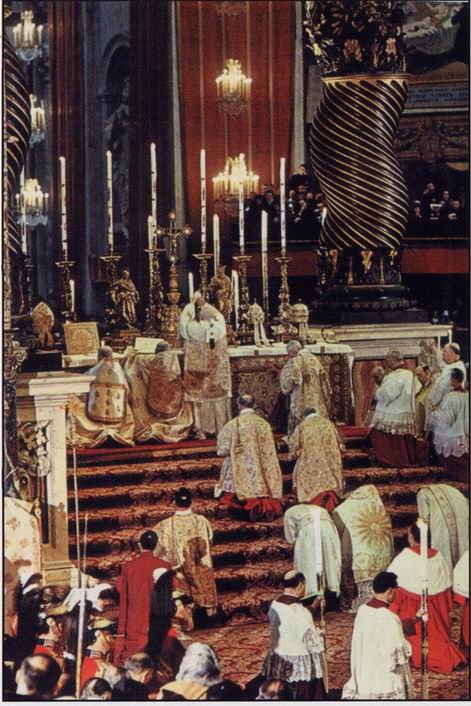

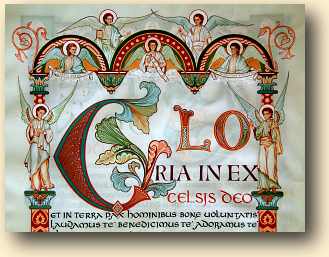

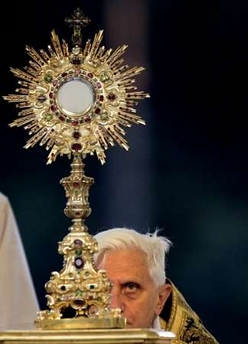


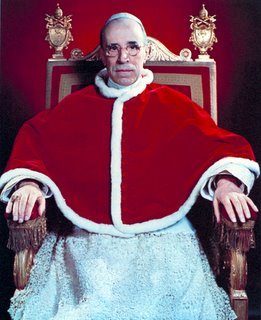




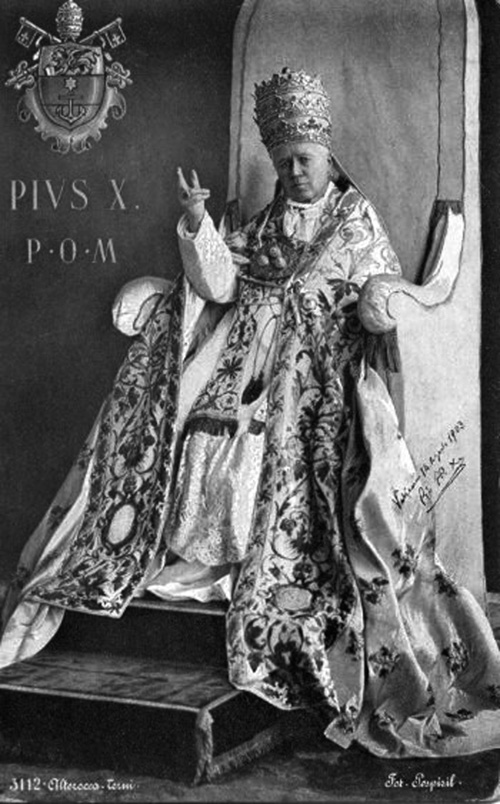



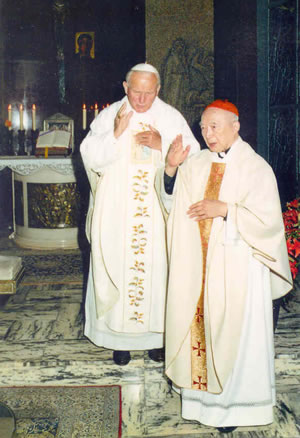






6 comments:
Pope John Paul II already created the Pastoral Provision specifically for Anglicans in the USA (Episcopalians) who returned to Rome. Perhaps Rome should just extend this for Anglicans in other countries. The Anglican "Communion" today is one big mess. What can one expect when even the Archlayman of Canterbury himself is a Druid?
I'm aware of the Pastoral Provision. Fr. Al Kimel was recently ordained to the Catholic Priesthood under this provision, as 25 years as an Anglican (Episcopal) cleric. So was Fr. Dwight. It ain't gonna work because the Pastoral Provision is too dependent on the Diocesan Bishop, much like the Ecclesia Dei indult.
Something more along the likes of a personal prelature or a sui juris Church is required to preserved the riches of the Anglican Tradition, especially Choral Evensong and the Cranmerian English of the BCP.
For an analysis of why the Pastoral Provision is only limited to the US, and of the opposition of the English Bishops and Cardinal Hume's lukewarm support, read William's Tighe's review of 'The Roman Option' .
Unavoce's review compares the situation to the Traditionalists in the Catholic Church.
Reunification may be unlikely. See http://www.cathnews.com/news/702/107.php
However, we mustn't give up hope. Let us continue to pray that we may all be one single Eucharistic Community.
Well, firstly, the Anglican faith is not a genuine faith as it was built on the wrong reasons. So, for those who think its time to make the cut, these will be the Anglicans who will join the Catholic Church. Probably dioceses will join, or probably parishes will join one by one.
They are not so worried about beliefs and theology because the differences are not life-shattering. However, the liturgy is found wanting and they will want their Book of Divine Worship to be used (the RC version of the Book of Common Prayer)to be used.
I had the opportunity to go through the Anglican use liturgy for the Roman Catholic Church and I must say, that our Novus Ordo is a shame!
The Anglican Use liturgy is certainly wonderful. As is the the tradition of Choral Evensong. The Cranmerian language conveys the majesty and transcendence of the liturgy as a participation in the Divine Liturgy in Heaven. Truly, in style, it was the English counterpart of the Tridentine Mass.
The Pauline Rite can be celebrated majestically and reverently also. One parish that successfully does this is St. John Cantius in Chicago.
It's just that the new Rite is susceptible to tinkering and all sorts of innovations are foisted on it.
And the English translation is atrocious. Actually, it is not a translation at all.
Lex orandi, lex credendi, the law of prayer is the law of belief.
Some of the tinkering might well be due to the desire to be more pastoral or out of ignorance with no mala fide at all. But some are using the liturgy, especially in making it absolutely horizontal, to try to change Catholic belief, especially in the Real Presence and the sacrificial priesthood.
For example, in Latin, the prayer goes like this:
Orate, fratres: ut meum ac vestrum sacrificium, acceptabile fiat apud Deum Patrem omnipotentem.
In the current English:
Pray, brethren, that our sacrifice may be acceptable to God, the almighty Father.
The sacrifice of the priest at the altar is, in the current English 'translation', not distinguished from the sacrifice of the people.
It should translate as:
Pray, brethren, that my sacrifice and yours may be acceptable to God, the almighty Father.
Not to mention my famous example of the original Latin in the Roman Canon's 'accipiens et hunc praeclarum Calicem in sanctas ac venerabiles manus suas' being translated into English as 'He took the Cup' when the correct translation would be 'taking into His holy and venerable hands also this noble chalice'.
There's surely an intention of mistranslating the text expunging from it the vertical reality of the Mass and the Church.
Another example.
The Latin has this 'Suscipiat Dominus sacrificium de manibus tuis, ad laudem et gloriam nominis sui, ad utilitatem quoque nostram, totiusque ecclesiae suae sanctae.'
Whereas in the English, we have this 'May the Lord accept the sacrifice at your hands
for the praise and glory of his name, for our good, and the good of all his Church.'
What happened to 'ecclesiae suae sanctae'? Even a first year Latin student can translate it for you as 'His Holy Church'.
The deliberate dumbing down of the liturgy surely impoverishes the Latin Rite as translated into English.
But, currently, the Anglican Usage is an indult, an indult that may be revoked or may die naturally for a lack of adherents and trained priests. The only was is a sui juris Church where it becomes a Rite in its own right, pardon the pun =)
Post a Comment